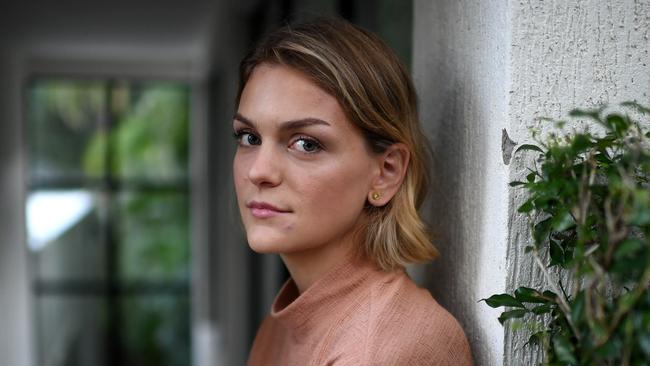Having Covid-19 jab makes sense and sensibility
Ellen Visscher is a young survivor of COVID-19 who has never quite recovered from the virus.

Ellen Visscher is a young survivor of COVID-19 who has never quite recovered from the virus.
She has two words for anyone unsure whether to get the jab: do it.
After catching the coronavirus while travelling in Britain in March last year, the 24-year-old PhD student developed a full array of symptoms, starting with a scratchy throat and ending with complete loss of smell and taste.
She is yet to reclaim all of her senses, saying smells are “still strange” and tastes “just aren’t the same”.
“I used to be able to smell absolutely everything, and now things just smell pretty different and unpleasant — it is not nice at all,” she said. “So much of your taste is also wrapped up in your sense of smell, so as you can imagine it makes eating your favourite meal a lot less fun when you can’t even taste it.”
The daughter of two researchers, Ms Visscher agreed to participate in a study conducted by her mother to discover why there are differences in the severity of symptoms between patients and ultimately discover new ways of treating the virus.
With news on Thursday that the AstraZeneca vaccine was no longer recommended for under-50s came a fresh wash of fear for the young woman that the virus was not yet over.
“It’s disappointing, but I can see why it’s been a difficult situation for the government,” she said. “I think everyone should just get vaccinated, so we can put an end to this virus. I would definitely still get the AstraZeneca vaccine because I think the risk is quite low compared to other things people take every single day.”
Ms Visscher’s plea is echoed by health professionals who want to see the vaccine rollout continue as planned.
Sydney-based general practitioner Stephen Massey, 38, received his first jab of AstraZeneca this week and will have his second shot as planned. “Two days ago I was recommending it to healthy patients under 50 and I still think it’s a great vaccine which we should promote,” Dr Massey said.
However, he acknowledged the “luxurious” position Australia was in, which allowed health authorities to “hold off until we have more information”.
“It’s still an excellent vaccine, but it seems reasonable to hold off for the moment until we get more data about its potential risks,” Dr Massey said.
Ms Visscher stressed the importance of everyone receiving a vaccine as soon as possible. “Vaccinations are about everyone building up an immunity to the virus, so that we can all get on with our lives as normal,” she said.



To join the conversation, please log in. Don't have an account? Register
Join the conversation, you are commenting as Logout